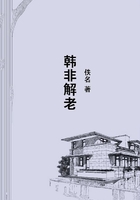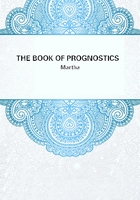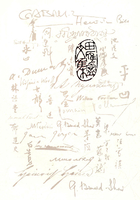With the passions which arise from the imagination it is otherwise than with passions which originate from the body. For instance, a disappointment in love or ambition calls forth more sympathy than the greatest bodily evil, for our imagination lends itself more readily to sympathize with the misfortunes affecting the imaginations of others, than is possible in the case of the sufferings of their bodies. Our imagination moulds itself more easily upon the imagination of another than our bodily frame can be affected by what affects his. Thus we can readily sympathize with a man who has lost his fortune, for he only suffers in his imagination, not in his body; and we can fancy, just as he does, the loss of dignity, the neglect of his friends, the contempt from his enemies, the dependence, want, and misery which he himself foresees in store for him. The loss of a leg is a more real calamity than the loss of a mistress; but whilst it would be ridiculous to found a tragedy on the former loss, the latter misfortune has given rise to many a fine play. Mere pain never calls forth any lively sympathy, and for that reason there were no greater breaches of decorum committed in the plays of the Greeks, than in the attempt to excite compassion by the representation of physical agonies, as in the cries of Philoctetes, (5) or the tortures of Hippolytus and Hercules. It is on this little sympathy which we feel with bodily pain that is founded the propriety of constancy and patience in its endurance.
2. Where, however, a passion takes its origin from a particular turn of the imagination , the imagination of others, not having acquired that particular turn, cannot sympathize with the passion, and so finds it in some measure ridiculous. This is particularly the case with the passion of love. We may sympathize with our friend's resentment, if he has been injured, or enter into his gratitude, if he has received a benefit; but if he is in love, however reasonable we may think it, "the passion appears to everybody, but the man who feels it, entirely disproportioned to the value of the object; and love, though it is pardoned in a certain age, because we know it is natural, is always laughed at because we cannot enter into it. All serious and strong expressions of it appear ridiculous to a third person; and though a lover may be good company to his mistress, he is so to nobody else. He himself is sensible of this; and, as long as he continues in his sober senses, endeavours to treat his own passion with raillery and ridicule. It is the only style in which we care to hear of it, because it is the only style in which we ourselves are disposed to talk of it."Our philosopher however admits, that though we cannot properly enter into the attachment of the lover, we readily sympathize with his expectations of happiness. Though his passion cannot interest us, his situation of mingled hope and fear interests us, just as in the description of a sea voyage it is not the hunger of the crew which interests us but the distress which it occasions them. When love is interesting on the stage, it is so simply from the distress it occasions. A scene of two lovers, in perfect security, expressing their mutual fondness for one another, would excite laughter and not sympathy. Such a scene is never endured but from concern for the dangers and difficulties foreseen in the sequel, or from interest in the secondary passionsfear, shame, and despairwhich are associated with love as a situation, and with which alone we can really sympathize.
3. In the third place come the unsocial passions , such as hatred and resentment, with all their modifications. They also are founded on the imagination, but have to be consider- ably modified before they touch that point of propriety with which an impartial spectator can sympathize.
For these passions give rise to a double sympathy, or rather divide our sympathy between the person who feels them and the person who is the object of them. Though we may sympathize with him who has received a provocation, we also sympathize with his adversary, if he becomes the object of undue resentment. We enter into the situation of both, and the fear we feel with the one moderates the resentment we feel with the other. Hence for resentment to attain the mean of propriety, it must be more reduced from its natural degree than almost any other passion; and the greater restraint a man puts on his anger, the more will mankind, who have a very strong sense of the injuries done to another, enter into and bear with his resentment.
These unsocial passions are, however, necessary parts of human nature, and as on the one hand we cannot sympathize with excessive indignation, so on the other hand we blame and despise a man "who tamely sits still and submits to insults," from our inability to comprehend his insensibility and want of spirit. These passions are therefore useful to the individual, as serving to protect him from insult and injury; but there is still something disagreeable in them which makes their appearance in others the natural object of our aversion. It is so even when they are most justly provoked.















